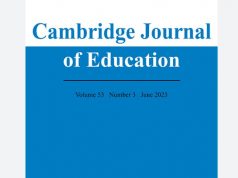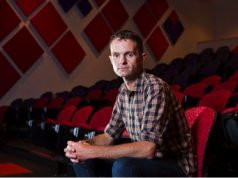by Neil Selwyn
“Any teacher who can be replaced by a machine should be” (Arthur C. Clarke)
The science fiction writer Arthur C. Clarke memorably stated that “any teacher who can be replaced by a machine should be”. This observation continues to be much-repeated, especially in debates concerning the ongoing digitization of education, the rise of ‘twenty-first century learning’, and so on. Clarke’s words are used frequently to exhort teachers to keep up with technological change or else get out of teaching altogether. Such reasoning often implies that many teachers are simply not up to the task of educating in the digital age, and that new technologies are now capable of doing a better job. In fact, there are growing numbers of people who take this line of thinking to justify abandoning traditional ideas of expert ‘teachers’ altogether.
However, as with most received wisdoms about technology and the future, these claims need to be seen in their full context. Clarke trotted this line out regularly, initially in comments to a United Nations event in the early 1970s. Here he was speculating on the idea of an ‘electronic tutor’ – a vast computer-based encyclopaedia in multiple languages that could be updated regularly and connected to people around the world via satellite. When asked if this electronic database would constitute a new form of education Clarke replied, “No, of course not. We must use the technology to train teachers first”. After reasoning that the world would always need good teachers, he reiterated the point by concluding, “Come to think about it … any teacher who can be replaced by a machine probably should be”.
These afterthoughts provide a very different slant to the debate. Clarke’s intention was to argue that expert professional teachers are responsible for a lot more than providing access to information. Ideally teachers are a catalyst for social, emotional and human processes of educating rather than merely informing and instructing. The fact that the nuance of Clarke’s original response has been lost so quickly in its subsequent retelling illustrates a worrying trend in contemporary discussions of education and technology. Why are so many people outside of education (especially in the tech-sector) ready to give up on the idea of ‘the teacher’ in the digital age? Most importantly, what do teachers have to do to justify their professional existence in the era of artificial intelligence, personalised learning and adaptive education? Amidst ongoing predictions of the automation of the professions and ‘robots taking our jobs’, why precisely do we need human teachers in the 2020s?
NOTE: Neil Selwyn is currently writing a book on the topic of robots, AI and the automation of teaching. His plan is to sporadically blog pieces of writing on the topic along the way … hopefully resulting in: Selwyn, N. (2019) Should Robots Replace Teachers? Cambridge, Polity







